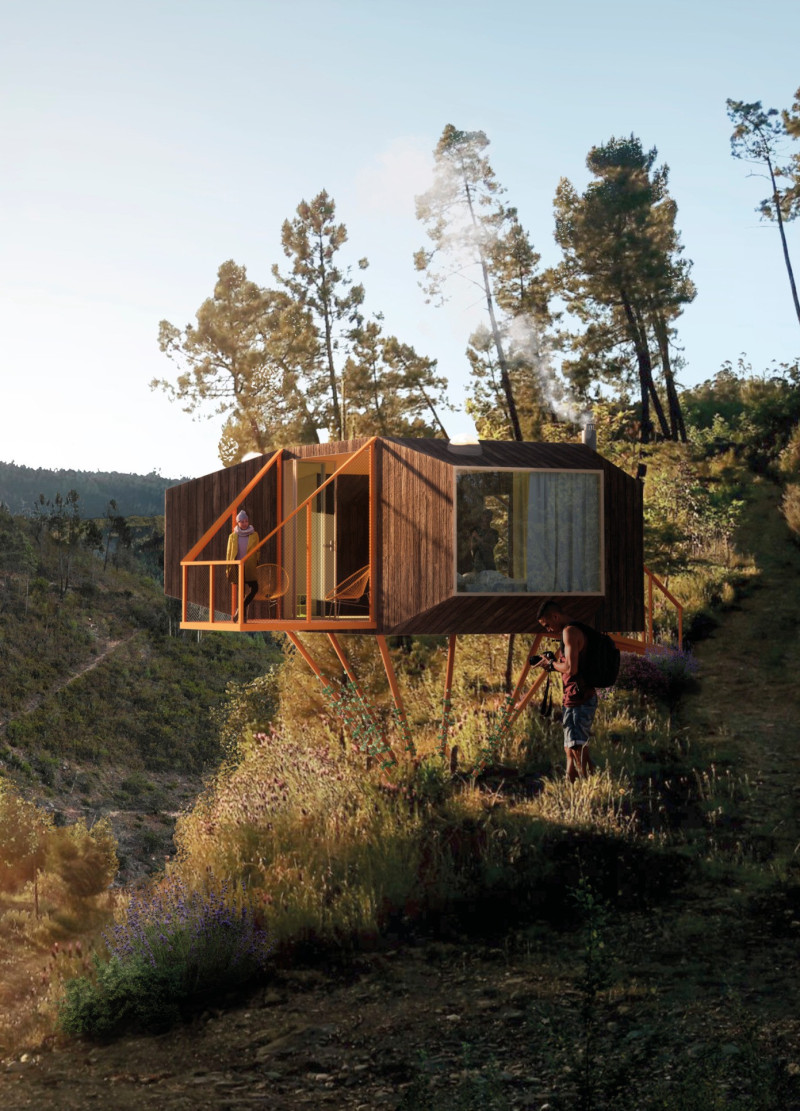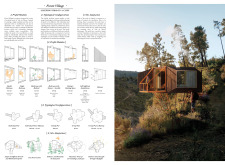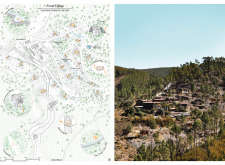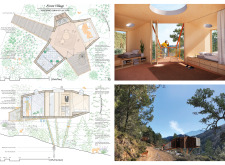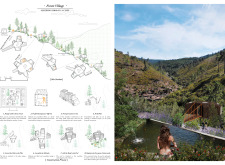5 key facts about this project
Forest Village is located in Vale de Moses and features a series of sleeping pods designed for flexible living arrangements. The project focuses on modular design to serve various user needs while emphasizing environmental responsibility. The overall concept is to integrate the structures harmoniously into the surrounding landscape, allowing for a closer connection to nature.
Modular Design
The architecture stands out for its modular approach. Each pod consists of smaller, low-maintenance modules, maintaining a footprint of around 15 m². This thoughtful design maximizes space utilization while ensuring minimal disturbance to the existing land and trees.
Functional Configuration
Each sleeping pod includes vital components like a landing ramp, a bedroom, a bathroom, and a self-sufficient installations module. This layout enables a clear separation of functional areas. The design also accommodates different users through varying typologies, such as family pods with extra bedrooms and group pods that can host larger gatherings.
Environmental Integration
A commitment to sustainability is evident throughout the project. The pods are strategically positioned to protect the natural tree canopy, reducing ecological impact. Moreover, each pod features systems to self-clean grey water using active carbon filters, which contribute to the health of the forest ecosystem underneath.
Sustainable Aesthetics
While specific materials used in the construction are not mentioned, there is an emphasis on choosing low-maintenance options in line with sustainable practices. The design carefully fosters an aesthetic connection to the surrounding landscapes of Vale de Moses, enriching the user experience with the natural environment.
The alignment of the pods with the stunning views of the area enhances the living experience, creating spaces that encourage relaxation and appreciation of the natural beauty while harmonizing with the landscape.


